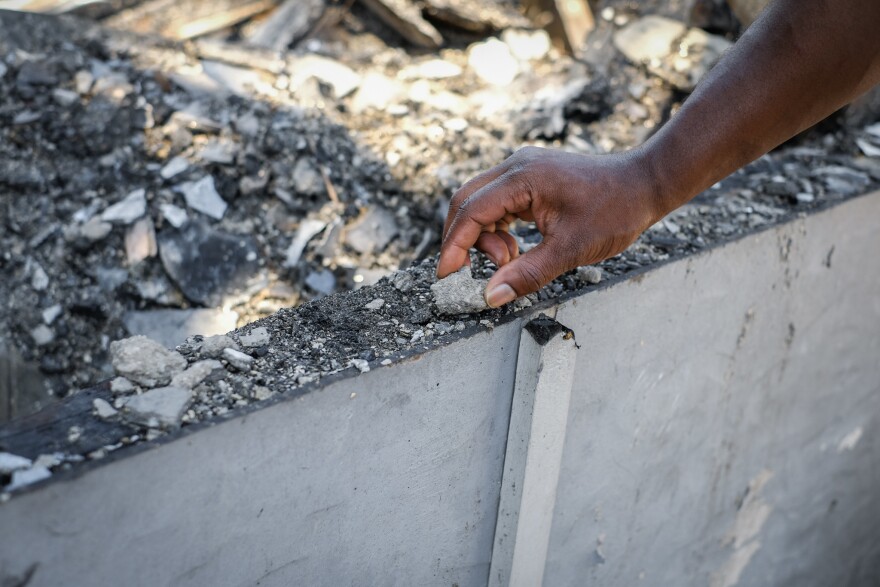Trevon Ellis spent years building up his north Minneapolis barbershop, the Fade Factory, luring customers with smart haircuts, snacks and friendly conversation.
It took just one terrible night to destroy it all.
"Inside is totally burned down," Ellis says. "Everything was burned to a crisp."
The recent wave of protests against police brutality has left a trail of chaos and destruction in many city neighborhoods, with countless businesses looted and damaged.
Among them are some African American businesses, which were already hard hit by the coronavirus lockdowns and are decidedly more vulnerable to the economic downturn.
The number of black-owned businesses has grown sharply over the years, according to the U.S. Census Bureau, but most are tiny operations financed not through bank credit but personal funds and loans from friends and family.

They "are not mom and pops. They're mom or pops," says Ron Busby, president and CEO of U.S. Black Chambers Inc.
Ellis, 42, was trained as a barber more than a decade ago and began renting space in a barber shop in a rough part of Minneapolis. He printed out business cards with his name on them and passed them out everywhere he went.
"If you're motivated and self-driven, which is what it takes to be a barber, the financial part of it is limitless," Ellis says.
A self-described "people person," Ellis loves chatting with customers, hearing their confidences and, in the process, leaving them looking better than when they came in.
"If they can look at theirself in the mirror or get compliments from people that see them with a nice haircut, it actually makes people more positive, more lighthearted," Ellis says.
When the lockdowns began in March, Ellis was forced to shut his shop down. While some of his regular customers begged him to cut their hair on the sly, he says he worried about contagion.
The weeks since then have been rough financially and boring as well.
"I slept a lot, but you only can sleep so much. You only can surf the Internet so much. There's only so much social media you want to feed in your brain because you can't believe everything you see or hear on there," Ellis says.

He had been hoping the restrictions would be lifted soon and he could reopen the Fade Factory. Then, sometime late Saturday, someone broke into the shop, poured some kind of dark liquid on the floor and lit the place on fire.
Firefighters in Minneapolis were so overwhelmed by emergency calls that it took them hours to show up, and by then the Fade Factory was no more.
After Ellis' plight made the local news, a stranger set up a GoFundMe page, which had raised more than $53,000 as of Wednesday afternoon. Ellis says he will use the money to rebuild his shop in the same neighborhood.
He says he knows why people protested and doesn't blame anyone in particular. What he doesn't understand is why his shop was targeted.
"Whoever torched that barbershop, I didn't deserve it, the community didn't deserve it and definitely that building owner didn't deserve it," Ellis says.
Copyright 2021 NPR. To see more, visit https://www.npr.org.





